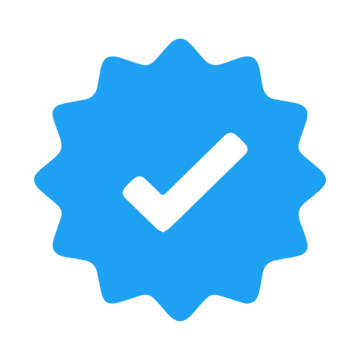Windows as a software package would have never been affordable to individuals or local-level orgs in countries like India and Bangladesh (especially in the 2000’s) that are now powerhouses of IT. Same for many SE Asian, Eastern European, African and LatinoAmerican countries as well.
Had the OS been too difficult to pirate, educators and local institutions in these countries would have certainly shifted to Linux and the like. The fact that Windows could be pirated easily is the main factor that led to its ubiquity and allowed it to become a household name. Its rapid popularity in the '00s and early ‘10s cemented its status as the PC operating system. It is probably the same for Microsoft Office as well (it is still a part of many schools’ standard curricula).
The fact that Windows still remains pirateable to this day is perhaps intentional on Microsoft’s part.
Absolutely, and Microsoft knows this. You could even upgrade a pirated version of Windows to a legit copy when they did the upgrade drive for 7 I believe it was. Did it myself. And they completely turn a blind eye to OEM key reselling, which is why you can get legit windows keys for less than $10 these days.
They’ve also never done anything substantial against pirates, all they do is pester about buying a key and warn about the risks. The “worst” they do is stop you from using windows update which some see as a feature. When they could just completely lock you out and/or report you to the police.
The money is in server for Microsoft, but they’re losing that battle slowly but surely since they can’t make windows actually work properly in a container setting. I have customers that love Microsoft but despite their best efforts at making containerized windows workloads work it just sucks major ass. And virtually everybody is coming around to realize just how insane of a paradigm shift containers are.
And losing that battle is why 12 will likely move to subscription. And I’m willing to bet money that, in 10 years time, will be considered the starting point for Microsofts dramatic loss of market share in the home PC market. From 90% or so now down to like 50 ish %. But maybe some smart guys at Microsoft will nip that in the bud.
I would argue there’s nothing to snip in the bud, since the home PC is a dying breed anyway. It is increasingly only used by hobbyists and professionals. Some people will use a laptop issued from work but the choice of OS in those cases is seldom theirs. Other than that it’s all phones, tablets, consoles, TVs etc.
The PC market itself is shrinking.
Although I mostly agree with you, this is not true:
The “worst” they do is stop you from using windows update
The worst they do is practically force you to buy a windows license with most laptops and even some pre-built tower PCs.
Yes there are some vendors/manufacturers who don’t force you or ask, if you want an Ubuntu/Mint/Pop_!OS or smth. but most just don’t give a shit.
deleted by creator
Windows being easy to pirate wasnt the reason for it’s popularity. It had market share because they allowed for it to be preinstalled on machines for virtually nothing. They allowed it to be preinstalled on machines for virtually nothing because the OS wasn’t the flagship product.
MS Office has always been the major flagship product for the company. This was true in 1994 and still is today. Office is so important to their revenue streams that it’s fairly common knowledge and has been mentioned by former employees that OS development would focus on compatibility with Office programs, not the other way around.
Specifically if you look at the years around Office XP and 2003, that suite is used very much as a CVS. They deprecate their operating systems using Office.
That’s the genius of proprietary software business models, also adobe is guilty of this, let people pirate your software so they dominate using your software. Once their skills are built on it once they get to the workforce they won’t even question using a libre alternative. In the end they manage to dominate the market
I think Windows is successful because it was defacto preinstalled on all computers. Even people in third world countries are buying computers whole, not a basket of parts to assemble.
Also software. You’re not going to assemble a computer, install Linux, and then not be able to run anything on it. You want to run all the software that was built to run on Windows, which was built to run on Windows because it came installed on every computer, etc. (Remember Linux back then really couldn’t run all that much. No office? No games? You’re toast.)
https://en.wikipedia.org/wiki/Criticism_of_Microsoft
Ignoring unauthorized copying
… Bill Gates said “And as long as they’re going to steal it, we want them to steal ours. They’ll get sort of addicted, and then we’ll somehow figure out how to collect sometime in the next decade.”
The practice allowed Microsoft to gain some dominance over the Chinese market and only then taking measures against unauthorized copies. In 2008, by means of the Windows update mechanism, a verification program called “Windows Genuine Advantage” (WGA) was downloaded and installed. When WGA detects that the copy of Windows is not genuine, it periodically turns the user’s screen black. This behavior angered users and generated complaints in China with a lawyer stating that “Microsoft uses its monopoly to bundle its updates with the validation programs and forces its users to verify the genuineness of their software”.
https://en.wikipedia.org/wiki/Halloween_documents
… the documents identified open-source software, and in particular the Linux operating system, as a major threat to Microsoft’s domination of the software industry, and suggested tactics Microsoft could use to disrupt the progress of open-source software.
Windows is largely successful because there was nothing else good enough for Intel to use back in the late 80s. They struck a partnership and it took off, indoctrinating people into the Windows way of life for decades to come. Most people hate new tech, it means that they have to learn something new that they’d rather not (akin to telling someone to write with the opposite hand than the one they’ve been using their entire lives), even if that thing is simple. Piracy just strengthened that already strong foothold that they had.
When most people bought their PCs, Windows was already bought and paid for and installed by the vendor, so piracy might not have hit as hard as you think.
If you’re Microsoft, that last thing you want is people having a choice of operating system - either in the store, or when they get home - so you make sure it’s a done deal before the PC is unboxed.
That’s SOP for Microsoft, and what got them into trouble when they were bundling Internet Explorer.
It’s also worth noting, that Linux hasn’t always been a competitive desktop product for the home market.
Mate, the most advanced and popular MS product activator is open source, hosted on GitHub owned by Microsoft and Microsoft is fully aware of it. And, just like in the 90-s when one serial key was known to every human on earth and was never blocked, they give exactly zero fucks. I won’t even be surprised if I see some commits with bug fixes from Microsoft themselves.
just like in the 90-s when one serial key was known to every human on earth and was never blocked
How would they have blocked it? Windows activation didn’t exist in the 90s.
They could block it in new releases and service packs if they wanted to. But they never did. When XP came out with online updates, the keys were once again well known and were never blocked.
I read something similar many years ago where Microsoft intentionally wanted people to use use pirated windows to increase their user base.
They still do. There’s so much shit in Windows 10/11that could phone home and shut down your install if you don’t have a valid license, but Microsoft doesn’t actually give a shit if you have a license or not. They just want to make sure you have their botnet installed and not any other OS.







